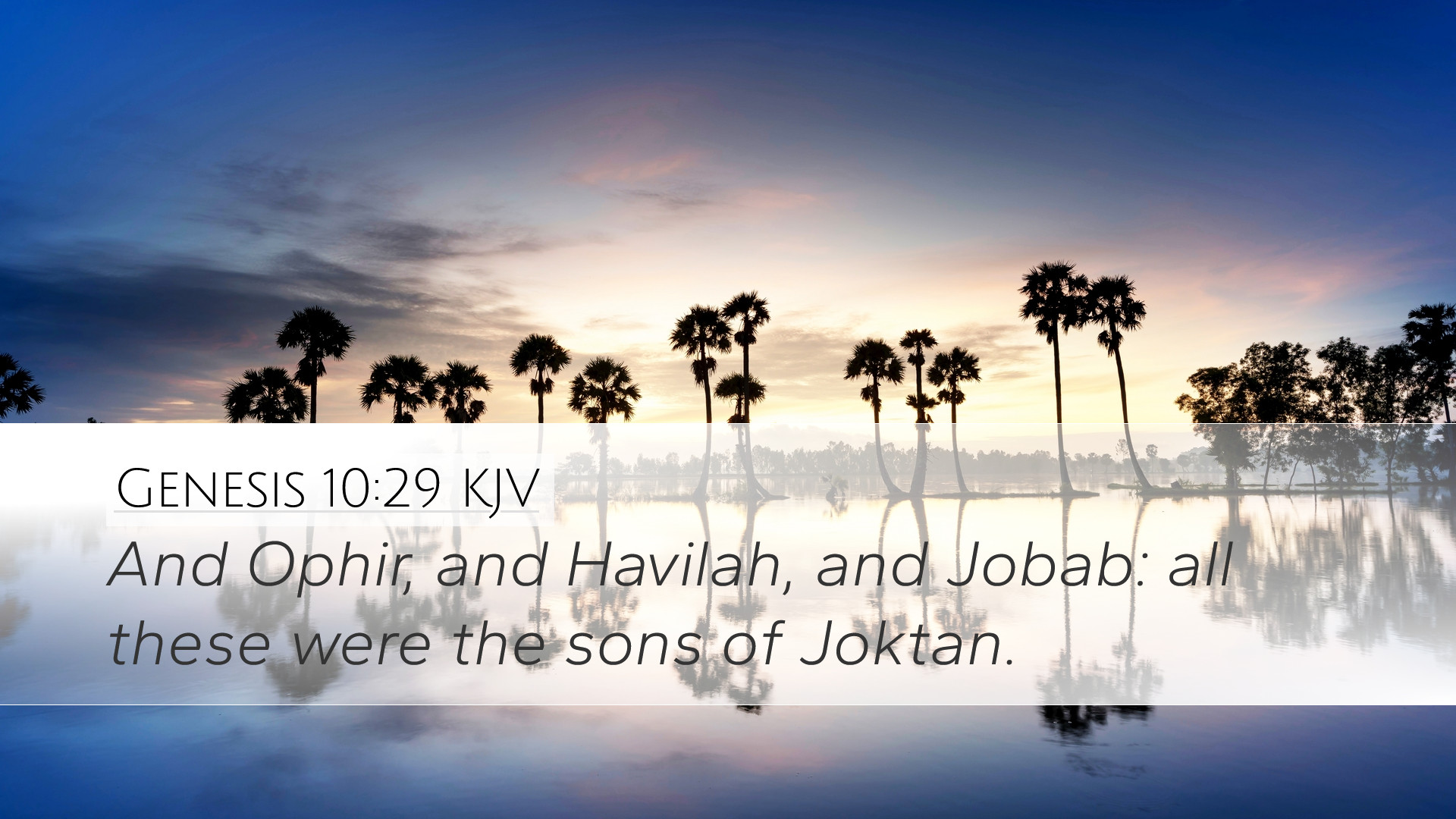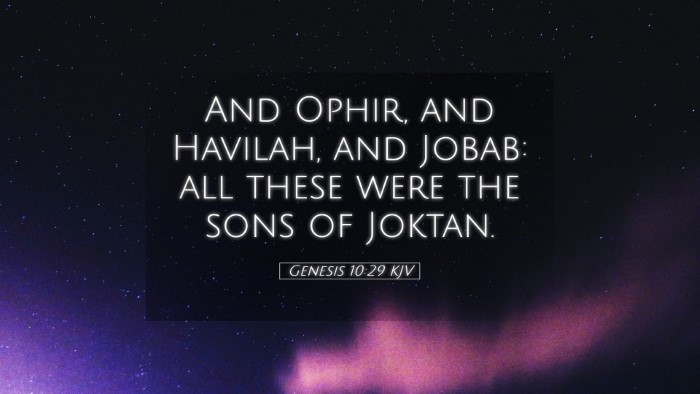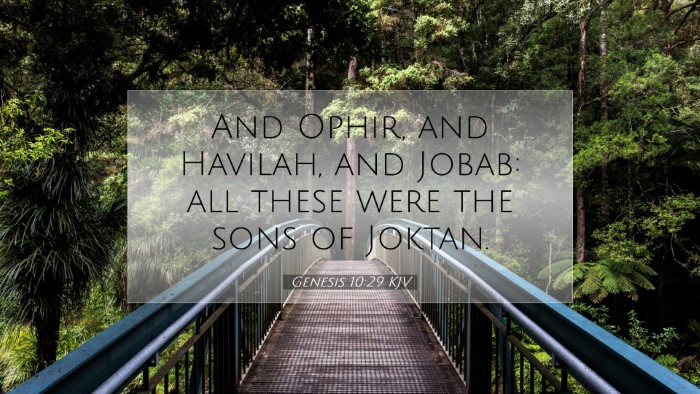Commentary on Genesis 10:29
Verse: “And Obal, and Abimael, and Sheba,”
Introduction
Genesis 10 is often referred to as the “Table of Nations,” focusing on the descendants of Noah's sons—Shem, Ham, and Japheth. In this passage, we encounter the genealogy of the descendants of Shem, particularly focusing on the individuals named in verse 29. This commentary seeks to explore the significance of these names and what they reveal about the early post-diluvian world.
Contextual Background
The genealogical records in Genesis serve not only as a historical account but also as a means to understand God’s unfolding plan through His chosen people. Each name holds historical relevance and often corresponds with geographical regions and peoples known in the ancient world.
Insights from Public Domain Commentaries
Matthew Henry's Commentary
Matthew Henry emphasizes the importance of genealogies in establishing God’s covenantal promises. He notes that the mention of Obal, Abimael, and Sheba reflects the continuation of Shem’s lineage, which will lead to significant biblical figures, particularly in the context of the Israelites. Henry points out that the descendants serve not only as historical records but also as moral exemplars for faithfulness. Each name represents a people who have a role in God’s redemptive history, and their mention serves to affirm God’s providential hand throughout generations.
Albert Barnes' Notes on the Bible
Barnes provides an exegetical approach, focusing on the meanings of the names listed. He elaborates that “Obal” may signify a “sandal” or “shoes,” suggesting a connection to trade or travel. He interprets “Abimael” as meaning “father of a king” and connects it to the early formation of tribal identities. “Sheba,” which Barnes refers to as a significant name, denotes “seven” and points to a tribe that would later be prominent in the context of wealth and trade, contributing to the understanding of the Arabian tribes linked to the region. Barnes accentuates that these descendants were likely early inhabitants of Arabia, illustrating the flourishing of nations post-flood.
Adam Clarke's Commentary
Clarke offers considerable insight into the geographical implications of these names. He observes that the descendants were linked to various parts of Arabia and surrounding regions. Clarke emphasizes that Sheba, in particular, is historically significant, noted for its wealth and trade routes, which become crucial in later biblical narratives. His analysis suggests that the lineages mentioned pave the way for historical narratives in books such as 1 Kings, where trade and interaction between nations are depicted. Clarke also recognizes a spiritual allegory in these genealogies, suggesting that they remind readers of the universal need for redemption and God’s overarching plan through diverse nations.
Theological Implications
From a theological standpoint, Genesis 10:29 encapsulates several critical themes:
- Covenant and Continuity: This verse underscores the notion of covenant continuity after the flood, highlighting God’s intention to populate and bless the earth through diverse nations.
- Divine Sovereignty: The deliberate naming of nations signifies God's sovereignty over human history and the unfolding of His divine plan through genealogies.
- Unity in Diversity: The representation of various tribes indicates a coming together of nations under God’s creation, setting up the groundwork for future revelations of God's character and salvation plan.
Conclusion
Genesis 10:29 provides a concise yet profound glimpse into the early lineage of mankind after the flood. Through the analyses of notable commentaries by Matthew Henry, Albert Barnes, and Adam Clarke, we discern that the names listed are not mere footnotes in biblical history; they embody the realities of God’s covenant, the diversity of creation, and the very fabric of human societies that would play roles in the biblically-central narrative. For pastors, theologians, and scholars, these insights serve as a reminder to seek the divine drama woven through Scripture—from genealogies to the unfolding of God’s redemptive work through Christ. Genesis 10:29 stands as an invitation to explore and embrace the rich tapestry of biblical history.


